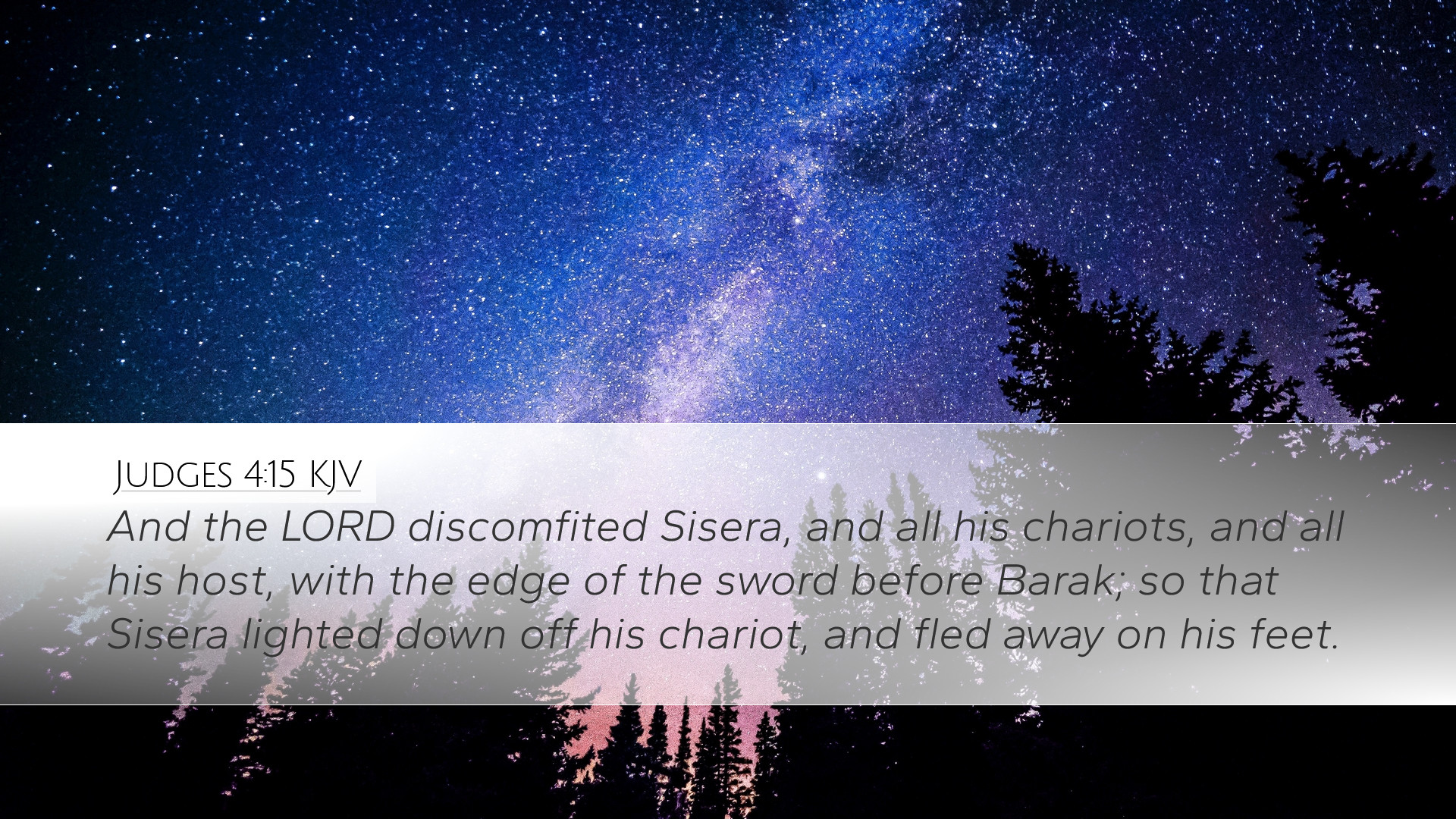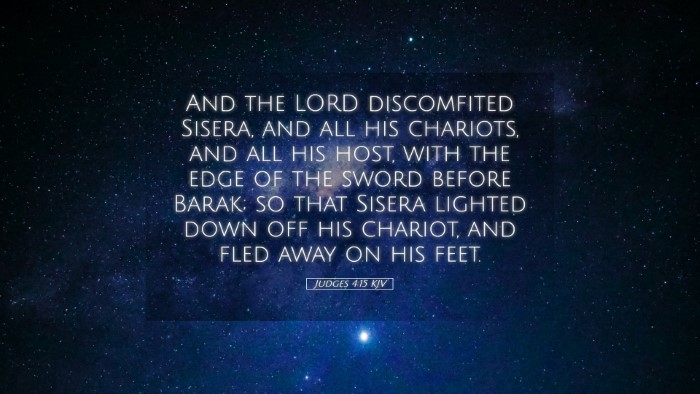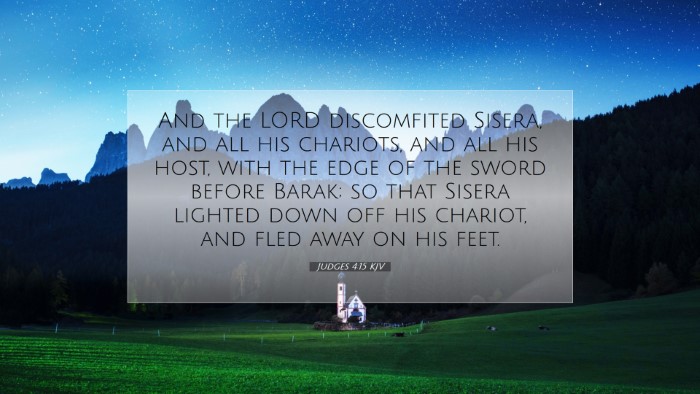Old Testament
Genesis Exodus Leviticus Numbers Deuteronomy Joshua Judges Ruth 1 Samuel 2 Samuel 1 Kings 2 Kings 1 Chronicles 2 Chronicles Ezra Nehemiah Esther Job Psalms Proverbs Ecclesiastes Song of Solomon Isaiah Jeremiah Lamentations Ezekiel Daniel Hosea Joel Amos Obadiah Jonah Micah Nahum Habakkuk Zephaniah Haggai Zechariah MalachiJudges 4:15
Judges 4:15 KJV
And the LORD discomfited Sisera, and all his chariots, and all his host, with the edge of the sword before Barak; so that Sisera lighted down off his chariot, and fled away on his feet.
Judges 4:15 Bible Commentary
Commentary on Judges 4:15
Verse Context: Judges 4:15 states, "And the Lord discomfited Sisera, and all his chariots, and all his host, with the edge of the sword before Barak; so that Sisera lighted down off his chariot, and fled away on his feet." This verse encapsulates a pivotal moment in the narrative of the Israelite struggle against oppression.
Exegesis of Judges 4:15
This verse highlights the supernatural intervention of God in the military affairs of Israel. The phrase “discomfited Sisera” suggests not only confusion but also a divine disruption that causes Sisera’s forces to falter.
Divine Intervention
Matthew Henry's Commentary emphasizes that the victory achieved by Barak and Deborah was less about military might and more a testament to Divine support. The words indicate a tumultuous state for Sisera's army, driven by fear and confusion that can only stem from God’s influence.
Historical Context
Albert Barnes notes the historical significance of this battle. Sisera, commander of King Jabin’s forces, faced formidable disadvantage given the tumult God introduced among his ranks. The Israelites, though outmatched, saw the hand of God move in their favor through a humble leader, a woman, and a seemingly insignificant army.
Symbolism of Chariots
Adam Clarke's Commentary reflects on the imagery of the chariots in the verse. Chariots represent the power and military advantage of Sisera but also point to the inherent vulnerability of human strength against divine authority. The text illustrates a theme recurrent in scripture: strength in God surpasses strength in numbers or equipment.
Theological Implications
This verse raises profound theological implications regarding God’s sovereignty and the often-invisible hand of Providence. The overwhelming impression is that God uses unlikely circumstances and individuals to fulfill His purposes.
- God’s Sovereignty: The narrative shows that God can turn the tides of battle and history according to His divine will.
- Use of Unlikely Leaders: The involvement of Barak, with Deborah’s guidance, signals God’s preference for using humble and obedient servants to carry out His plans.
- Divine Assistance in Challenges: It encourages believers that God fights their battles and provides support in moments of distress, emphasizing reliance on His strength.
Application for Today’s Believers
This verse not only recounts history but also serves as a timeless beacon of hope for modern believers. It implies that despite the odds, faith in God guarantees victory. Church leaders and believers alike are reminded that their struggles may seem insurmountable, yet divine intervention is always a possibility when faith is exercised.
Encouragement in Adversity
In times of adversity, this passage invites individuals to recall the moments when God intervened in their lives, often through what seems humanly impossible. The promise that God can 'discomfit' the challenges faced today resonates through centuries, reinforcing faith and diligence.
Faith in Action
For pastors and theologians, the text serves as a reminder to encourage congregations to act a faith-filled response when confronted with societal or personal challenges, assuring them of God’s active role in their victories.
Corporate and Personal Application
Church communities can glean from the communal aspect of the battle led by Barak and Deborah, advocating unity in prayer and purpose. Likewise, personal spiritual growth is emphasized through individual reliance on God amidst trials.
Conclusion
Judges 4:15 serves as a powerful reminder of God's authority and presence in our battles. The insights from public domain commentaries such as those from Matthew Henry, Albert Barnes, and Adam Clarke provide an enriched understanding of this verse that is both historically relevant and spiritually uplifting. Pastors, students, theologians, and scholars alike can draw on these insights to foster a deeper appreciation for God's intervention in the world around them.


